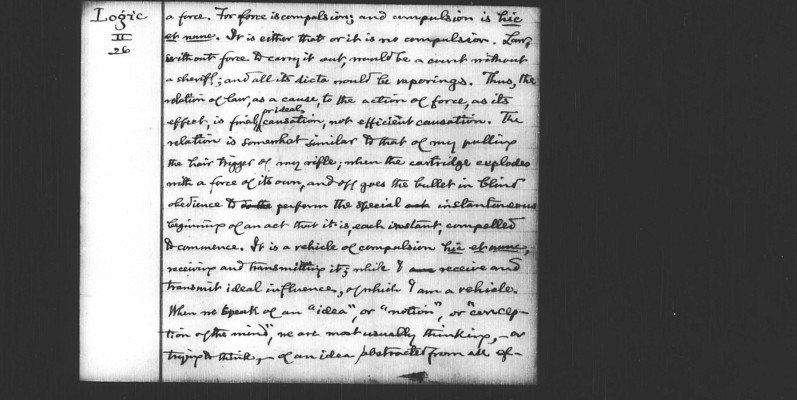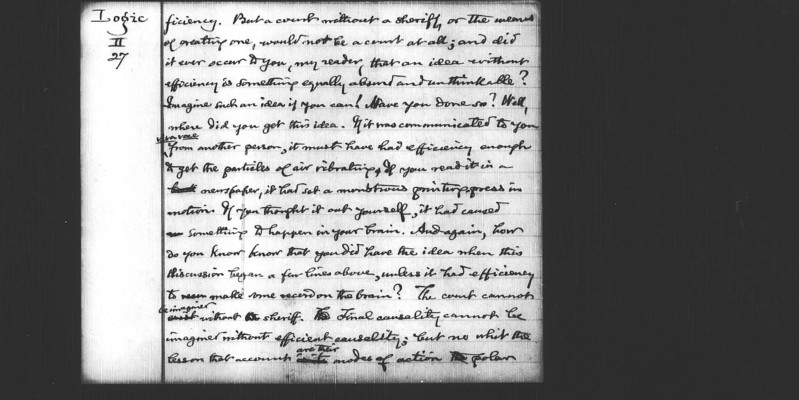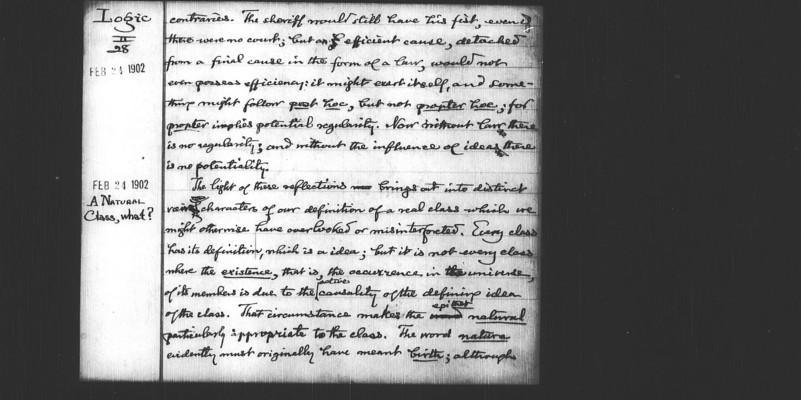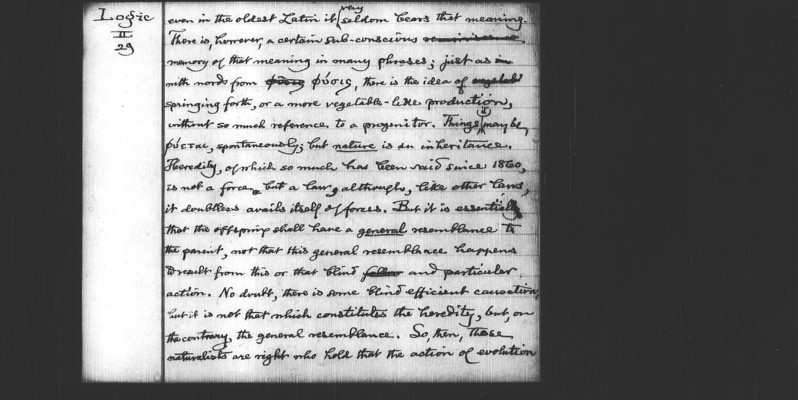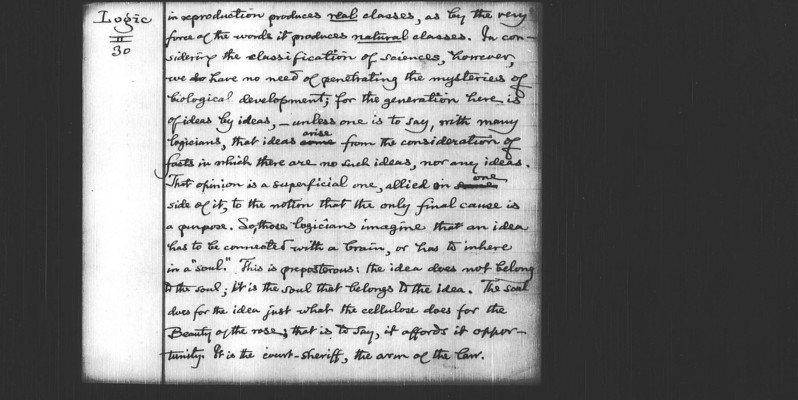Pages
26
Logic II 26
a force. The force is compulsion; and compulsion is hic et nunc. It is either that or it is no compulsion. Law, without force to carry it out, would be a court without a sheriff; and all its dicts would be vaporings. Thus, the relation of law, as a cause, to the action of force, as its effect, is final or ideal causation, not efficient causation. The relation is somewhat similar to that of my pulling the hair trigger of my rifle; when the cartridge explodes with a force of its own, and off goes the bullet in blind obedience to do the perform the special [?] instantaneous beginning of an act that is is, each instant, compelled to commence. It is a vehical of compulsion hic et nunc, receiving and transmitting it; while I [?] receive and transmit ideal influence, of which I am a vehicle. When we speak of an "idea", or "notion", or "conception of the mind", we are most usually thinking, -- or trying to think, of an idea abstracted from all of
27
Logic II 27
ficiency. But a court without a sheriff or the means of creating one, would not be a court at all; and did it ever occur to you, my reader, that an idea without efficiency is something equally absurd and unthinkable? Imagine such an idea if you can! Have you done so? Well, where did you get this idea. If is was communicated to you viva voce from another person, it must have had efficiency enough to get the particles of air vibrating. If you read it in a book newspaper, it had set a monstrous printing press in motion. If you thought it out yourself, it had caused something to happen in your brain. And again, how do you know know that you did have the idea when this discussion began a few lines above, unless it had efficientcy to seem make some record on the brain? The court cannot exist be imagined without the sherif. Final causality cannot be imagined without efficient causality; but no whit the less on that account [?] are their modes of action the polar
28
Logic II 28
contraries. The sheriff would still have his first, even if there were no court; but an efficient cause, detached from a final cause in the form of a law, would not even possess efficiency: it might exert itself, and something might follow post hoc, but not propter hoc; for propter implies potential regularity. Now without law there is no regularity; and without the influence of ideas there is no potentiality.
A NATURAL Class, what?
The light of these reflections [?] brings out into distinct [???] characters of our definition of a real class which we might otherwise have overlooked or misinterpreted. Every class has its definition, which is a idea; but it is not every class where the existence, that is, the occurrence in the universe, of its members is due to the active causality of the defining idea of the class. That circumstance makes the word epithet natural particularly appropriate to the class. The word nature evidently must originally have meant birth; although
29
Logic II 29
even in the oldest Latin it very seldom bears that meaning. There is, however, a certain sub-conscious [reminiscence?] memory of that meaning in many phrases; just as in with words from φύσις, there is the idea of [?????] springing forth, or a more vegetable-like production, without so much reference to a progenitor. Things it may be, [φύεται?], spontaeously; but nature is an inheritance. Heredity, of which so much has been said since 1860, is not a force but a law, although, like other laws, it doubtless avails itself of forces. But it is essential that the offspring shall have a general resemblance to the parent, not that this general resemblance happens to result from this or that blind [follow?] and particular action. No doubt, there is some blind efficient causation, but it is not that which constitutes the heredity, but, on the contrary, the general resemblance. So, then, those naturalists are right who hold that the action of evolution
30
Logic II 30
in reproduction produces real classes, as by the very force of the words it produces natural classes. In considering the classification of sciences, however, we do have no need of penetrating the mysteries of biological development; for the generaion here is of ideas by ideas, -- unless one is to say, with many logicians, that ideas come arise from the consideration of facts in which there are no such ideas, nor any ideas. That opinion is a superficial one, allied on some one side of it, to the notion that the only final cause is a purpose. So, those logicians imagine that an idea has to be connected with a brain, or has to inhere in a "soul". This is preposterous: the idea does not belong to the soul; it is the soul that belongs to the idea. The soul does for the idea just what the cellulose does for the Beauty of the rose; that is to say, it affords it opportunity. It is the court-sheriff, the arm of the law.
